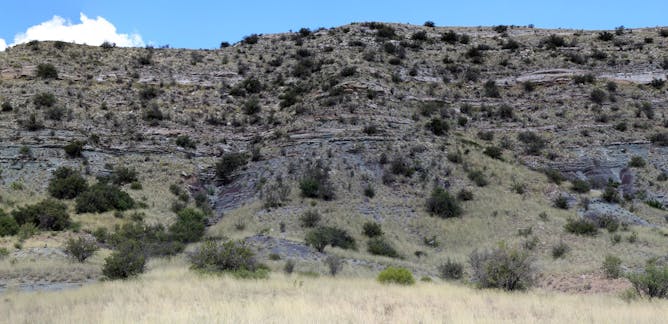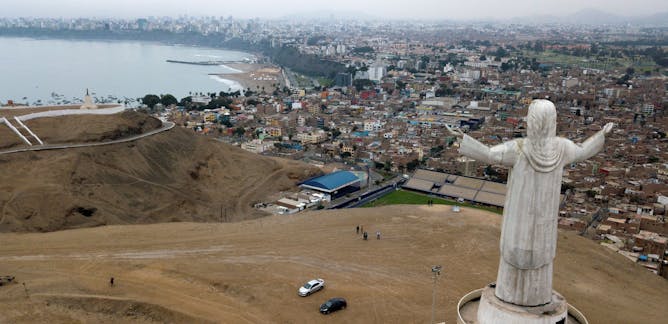|
|
|
Editor's note
|
|
The Nigerian government enraged many when it announced recently that it had released 1,400 “repentant” Boko Haram militants who are being reintegrated into society. The public outcry was partly fuelled by the way in which the releases were done, and how they were communicated. But under the circumstances, what could the government have done differently? Jideofor Adibe explains why simply executing militants, or detaining them indefinitely, are not viable options. Though the government’s handling of the matter is certainly open to criticism.
Hundreds of millions of years ago, a massive extinction event wiped out about 90% of marine species and 70% of species on land. More is known about when the marine extinction happened than events on land. Issues around the sequencing have been the subject of heated debates. Jennifer Botha unpacks new research from South Africa that may go some way to settling the issue.
|
Adejuwon Soyinka
Regional Editor West Africa
|

|
|
Top Story
|

Military commanders inspect arms and ammunitions recovered from Boko Haram jihadists.
Audu Marte/AFP via Getty Images
Jideofor Adibe, Nasarawa State University, Keffi
The re-integration of defectors from terror groups into society is a conundrum governments in conflict situations have to deal with across the world.
|
Science + Technology
|

Roger Keil, York University, Canada; Creighton Connolly, University of Lincoln; S. Harris Ali, York University, Canada
The current outbreak of COVID-19 underscores the need to study urban growth to understand the spread and control of future epidemics.
| |

Jennifer Botha, University of the Free State
The analysis suggests that there was a mass extinction event at the time of the end-Permian, on land - and that it happened at the same time as the marine end-Permian extinction.
|
|
|
Politics + Society
|

Matthew Peter Casey, Arizona State University
After a bribery scandal that took down four presidents and led Congress to dissolve, some Peruvians are putting their faith in an austere religion called the Israelites of the New Universal Pact.
| |

Nic Cheeseman, University of Birmingham; Gabrielle Lynch, University of Warwick; Karuti Kanyinga, University of Nairobi
Even in the most tense and dangerous of moments, the elite has found a way to come back together.
|
|
|
En español
|

Roberto R. Aramayo
Instaurado hace más de diez años, el Día Mundial de la Justicia Social, que se conmemora hoy, nos recuerda la necesidad de luchar contra las injusticias, incluso aunque sea con la disidencia.
| |

Alicia Armentia Medina, Universidad de Valladolid
Cuando estornudamos demasiado o nos sale urticaria la pregunta que nos viene a la mente inmediatamente es: ¿será alergia? Y la respuesta tiene cada vez más papeletas de ser afirmativa.
|
|
|
En Français
|

Laura Brown, Teesside University; Kelly Rose, Teesside University
Consommer trop de protéines animales accroit les risques de développer un large éventail de maladies chroniques en raison des acides aminés contenus dans la viande, révèle une étude.
| |

Marc-Antoine De La Vega, Université Laval
Les scientifiques explorent différentes avenues pour développer un vaccin contre le coronavirus, mais cela pourrait prendre plusieurs années, malgré ce qu'en disent les experts en santé publique.
|
|
|
| |
| |
| |
| |
| |
| |
|
|
|
|
|
|
|